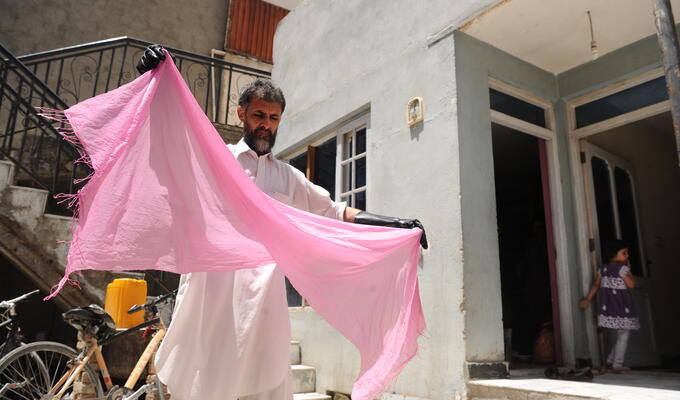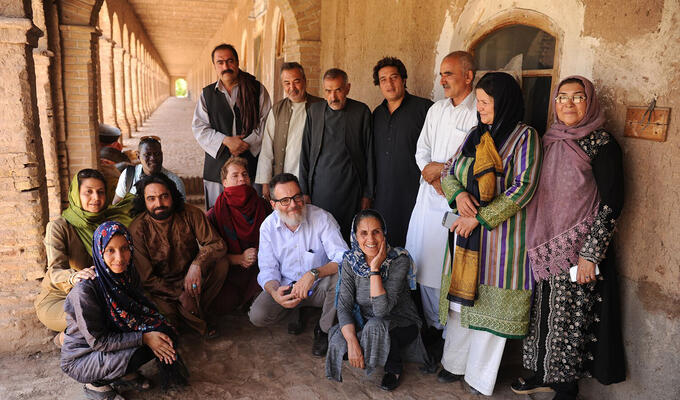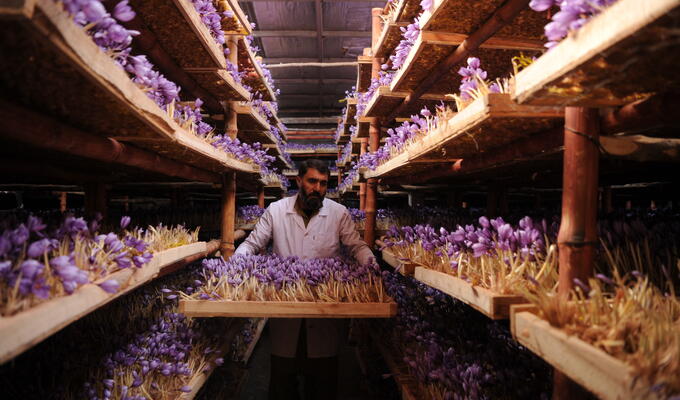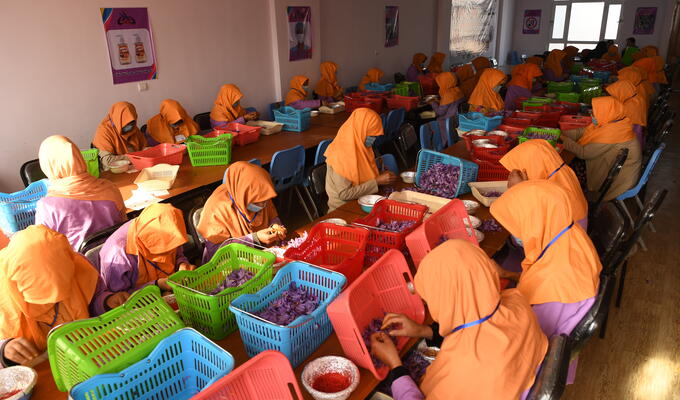



The beauty of resistance
Hidden treasures come to light as Afghans return home
Resilience, independence and heritage are hallmarks of the Afghan people. Decades of conflict have weakened the economy and displaced millions inside the country and abroad. Despite challenges – most recently COVID-19 – returning Afghans resist. It is a beautiful resistance, with roots in the country’s mountainous geography, generous soil and rich tradition in crafting and trading fine silk along the Silk Road.
The International Trade Centre’s Ethical Fashion Initiative works with the fashion and textiles sector in Afghanistan to revitalize traditional designs and artisanship, and bring exquisite garments to clients worldwide. Funded by the European Union, the Ethical Fashion Initiative in Afghanistan also unlocks value in the country’s agriculture: dried fruit, nuts and saffron – a spice so precious it is known as ‘red gold’.
Nurturing opportunities in fashion and food
Artisanal fashion relies largely on highly skilled women, especially for the delicate finishing we find on Afghan garments. Silk weaving and dyeing are traditionally a men’s domain – however, rural women feed the silkworms on mulberry leaves and often spin the yarn. Some cocoons are made into ‘vegan silk’, a process that does not kill the silkworms, but allows them to emerge as butterflies. Natural dyes, like saffron, onions and rose petals, give the fabrics their vibrant and earthy colours.
The fine foods sector, involving farmers and small-scale food processors, has enormous potential for creating jobs and opportunities for returning Afghans. The Ethical Fashion Initiative and partner institutions are introducing technical innovation and environmental sustainability into production methods in the fashion as well as food sector. The Initiative’s dual focus in Afghanistan means fashion and food can work in synergy, and valuable skills and innovative approaches can be shared with artisans, farmers and small businesses, raising capacity across the board.



